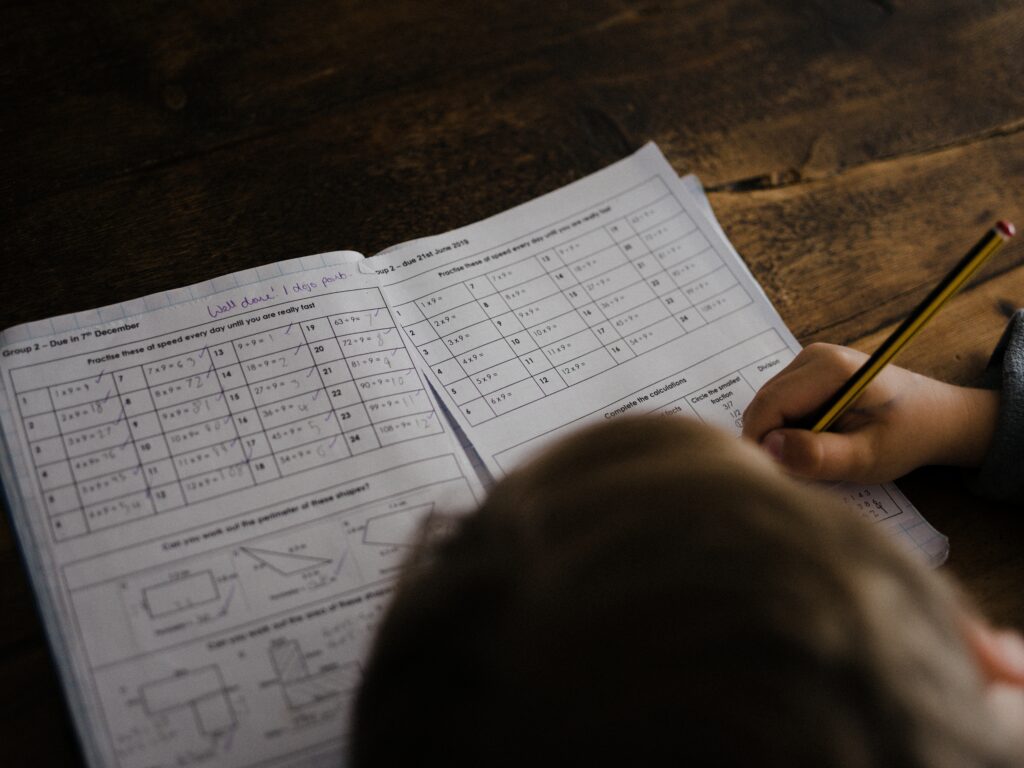
How to Build Confidence and Overcome Test Anxiety
Getting overwhelmingly anxious when taking tests is a real problem. In fact, in the US, 25% to 40% of students have test-taking anxiety. However, this is not limited to younger students. It affects kids as young as five and adults taking their Ph.D. degrees. Unfortunately, many are lost on how to overcome test anxiety.
Test anxiety often manifests as psychological distress that leads to more serious problems like academic failure and insecurity. This anxiety is attributed to factors including existing general anxiety disorders, mild atychiphobia or the fear of failing, and a history of unflattering test performance.
People with test anxiety may experience various symptoms that make it hard to think properly. For example, they may experience bouts of self-doubt and irrational fear. They may also feel stress, anger, and hopelessness. Aside from these emotional challenges, people with test anxiety may also experience physical symptoms. They may sweat profusely, faint, feel stomach pains, and experience rapid heartbeat.
To address these issues, one needs to boost their confidence and belief in their selves. Confidence or trust in one’s skills and ability to subdue challenges is often enough to overcome test anxiety. Discussed below are five of the most effective ways to achieve this confidence.
Table of Contents
Learn to Study Effectively and Efficiently
Obviously, you need to study to be able to answer test questions. After all, you cannot be confident in taking a test if you do not have the relevant knowledge and comprehension of the test topics. As such, you need to learn how to study effectively and efficiently. 
Here are some useful tips you can follow:
Make Your Own Study Guides and Aids
Writing the materials you need to study is an extremely helpful habit. It allows you to retain information in your memory longer.
Break Topics into Digestible Chunks
Big or broad concepts can be broken into smaller, easier-to-remember information bits. It will help you develop better study guides, and retain information in the same way writing does.
Develop the Habit of Studying
Train your brain to absorb information more effectively by studying regularly. It also helps if you study at the same time and in the same location.
Get Rid of Distractions
Most people lose focus when they are distracted or exposed to sights, sounds, and situations that prevent them from concentrating on what they are learning. The solution is to study in a distraction-free area or isolate yourself by using earplugs or earphones that blast white noise.
Think the Way Your Teachers Do
Anticipate what your teacher will likely include in the test by examining your assignments, class notes, and classwork or activities. It also helps to look at the previous tests used by your teacher.
Once you know and remember enough through studying, you become more confident to take your tests. Studying most certainly beats not preparing for a test at all.
Answer Several Practice Tests
Practice tests simulate actual examinations to train your mind and body to get used to test-taking stress. Aside from helping you recall the topics you should have learned, they acquaint you with the sensation of going through a test. As such, you avoid blanking out once you take the actual test.
Practice tests are an effective way to prepare for an exam because of the “testing effect.” This phenomenon helps you train your mind to retrieve information from your memory and analyze questions, problems, or situations to respond as you should.
Practice Relaxation Techniques
Sometimes, even if you have done everything to study and answer practice tests, you still feel overwhelmed with test anxiety. When this happens, it can be helpful to use some relaxation techniques.
One strategy is breathing exercises. You can do this by taking slow deep breaths while calming your mind and consciously relaxing your muscles.
Try to avoid overthinking and panic studying just before a test, too. Why not listen to a relaxing song? You can also play a game you particularly enjoy to calm your nerves.
Additionally, stay away from stimulants like coffee and energy drinks before your exam. These can cause nervousness or a loss of concentration. And you do not want that to happen.
Identify Learning Disabilities and Address Them
If you notice that it is especially hard for you to remember and understand information and analyze situations like others do, consider the possibility of having a learning disability. It may be a case of dyslexia, focus issues, attention deficit hyperactivity disorder (ADHD), or other similar conditions.
You cannot study effectively like others if you have special needs. Get professional help or consult an expert if you encounter challenges. In addition, you may need medication or treatment sessions to address learning difficulties.
Refusing to confront the possibility of having a learning handicap prevents you from building the confidence to study effectively and be adequately prepared for a test. Remember, it’s totally okay to seek help to improve one’s condition.
Be Healthy
It’s important that you maintain your physical and mental health in top shape. Studies show that poor health adversely affects learning. Besides, poor nutrition, insufficient sleep, and the lack of physical exercise will influence your mood and serve as reasons for you to doubt yourself as you take a test. So, if you want to overcome test anxiety, you need to take care of yourself.
Boost Your Confidence and Overcome Test Anxiety
Confidence certainly plays a role in your test-taking performance. Self-doubt can make you overthink and worry irrationally if you can actually answer questions correctly. What’s extra challenging is that you may find it hard to build your confidence because of various reasons like poor health and lack of sleep. Addressing confidence issues is a good start in overcoming test-taking anxiety, and a huge step in improving your chances of success.
Sarah is an accomplished educator, researcher and author in the field of testing and assessment. She has worked with various educational institutions and organisations to develop innovative evaluation methods and enhance student learning. Sarah has published numerous articles and books on assessment and learning. Her passion for promoting equity and fairness in the education system fuels her commitment to sharing insights and best practices with educators and policymakers around the world.








